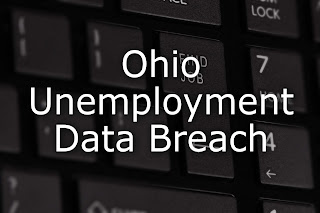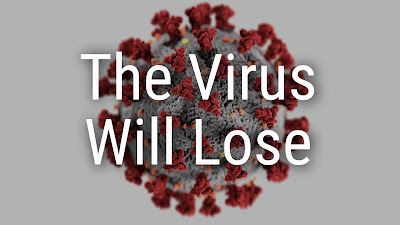Monday, November 9, 2020
Thousands of SonarQube Instances Publicly Exposed
Wednesday, October 14, 2020
Social Media Companies' Suppression of News is Equal to Voter Suppression
It doesn't matter if you're a conservative or liberal, Democrat or Republican, Libertarian or Green. If you're a decent human being, you'll agree that voter suppression is wrong.
By now you've probably heard how Facebook and Twitter attempted to suppress the distribution of an article by the NY Post on Hunter Biden's emails which are "potentially harmful" to him as well as his father, Presidential candidate Joe Biden.
Unfortunately, I predicted this. Facebook and Twitter Censorship of the NY Post article on Hunter Biden was an attempt to prevent the motivation of conservative voters to take a trip to the polls.
I wrote about in my book a potential method for social media sites to increase voter turnout for a specific candidate. In this case, Facebook and Twitter attempted to prevent the sharing of a news article which would have significantly increased conservative turnout less than 30 days before the election.
Quote from "Hacking of the Free":
Sadly, today winning elections today isn't about convincing people who to vote for, but simply about convincing enough people to show up and vote. Political strategists know this, and social media companies know this. Add to this that social media is now outpacing print newspapers as a new source, and you'll quickly understand that suppressing news on social media can be very damaging to ensuring that the public is properly informed of news.
Since the social media companies are fully aware of this information, suppressing information which will make voters angry at a candidate is absolutely equivalent to attempting to suppress their votes. So while Facebook and Twitter will suppress an article which puts a negative light on Joe Biden, they'll happily show me an article about who a squirrel predicted will win the 2020 Presidential Election.
Social media companies have already lost a lot of their users' trust. This latest incident could further damage the companies reputations, as users begin to flock to other social media platforms including MeWe or Parler.
Censorship is wrong. Censorship with the intention of manipulating the results of an election is even worse.
Ken is a Cyber Security Professional and author of the book Hacking of the Free. The views expressed in this post do not reflect the views of his employer or clients.
Friday, August 28, 2020
Before Photoshop: 1960s CIA Computerized Photo Processing
In the 1960s, computers were typically large, bulky machines used for the processing of text data or mathematical equations. Processing was typically performed using punchcards, or if you're really lucky, a terminal with a monochrome display. A pocket calculator typically contains more computing power than a 1960's computer, and a smartphone contains more computing power than the average 1960's data center.
It came to me as quite a surprise then, when I found documentation for a 1960's CIA computer system designed to process aerial photographs.
It's no secret that for decades the CIA has relied on aerial photography to collect foreign intelligence essential to our armed forces. However, the computerized capabilities which the CIA had available are absolutely remarkable.
According to declassified documents from the CIA's Freedom of Information Act Reading Room, the CIA possessed at least one computer in the 1960's capable of performing automated analysis of photography, including edge analysis and auto correlation. This computer would not only record to magnetic tape and print out analyzed versions of the photos, but even send the photo to a plotter for basically on-the-fly printing of a basic map/sketch of the photo.
One of the main goals of this system development was Automatic Target Recognition. For example, identifying the location of enemy aircraft in a photo, and automatically flagging the photo as containing aircraft.
If the CIA had this sort of technology in the 1960's, just imagine what their computer systems are able to do today.
This article is part of a series relating to my upcoming book Spy Machines, which explores technology used by the early CIA and other members of the intelligence community.
Tuesday, August 4, 2020
One positive from COVID-19 - I finally get to attend BlackHat - Virtual Attendance
Saturday, June 13, 2020
The Virus Will Lose: Why The Atlantic Got it Wrong
Wednesday, May 20, 2020
Ohio Unemployment Data Breach Victims - Claim Your FREE Copy of My Book "Death by Identity Theft"

Tuesday, May 5, 2020
News Media Claims "Facts Not Fear" While Spreading Fear During COVID-19
I first noticed the photo on March 3rd, when Fox 45 Baltimore ran a story about 7 Marylanders being tested for Coronavirus. I thought it was a bit excessive to have someone on a stretcher in an isolation chamber while wearing hazmat suits, just in order to test for the presence of the virus.
About a month later I see the exact same photo in another Fox 45 article. Only this time the photo is labeled as a "file photo". While it's not uncommon for news organizations to re-use some of their own photos for future stories, this photo just stuck out to me as odd, so I started digging.
Monday, May 4, 2020
Hacking of the Free - Learn the secret techniques used to influence YOUR vote in the 21st Century
The Internet age has ushered a new type of warfare - digital warfare. This isn't just warfare among "hackers" gaining unauthorized access to computer systems, but a war to influence public opinion through data analytics, propaganda and "fake news". Waging a war against the minds of the people isn't a new strategy, but the Internet age has ushered in the ability to rapidly produce simultaneous attacks against democracy and free elections.
This book explores the digital threats our democracy faces in the 21st century, and how to guard against those threats.
This book will normally sell for $16.99, but I'm offering a launch special with an extremely low price. This price is so low, I can't even list it here, and will only be available until June 5, 2020.
To purchase, CLICK HERE to get access to this launch special, before it's gone!
Saturday, May 2, 2020
Contact Tracing Privacy Concerns and You
Before diving into the privacy concerns with contact tracing, I'd like to take a moment to say that COVID-19 is absolutely a serious health issue which should not be ignored. People should take reasonable precautions to reduce the chance of infection. Personally, I've been wearing a respirator mask in public since the beginning, as well as frequently using hand sanitizer. I'm not downplaying how serious this situation is. However, I do have concerns that through all this we're losing our ability to freely travel, we're losing many small businesses which have been the lifeblood of our communities for decades, and we're losing our privacy. At some point a line must be drawn, and people must say "enough".
The fact of the matter is, just like with identity theft, you can only reduce the risk, you can't eliminate it. Between social distancing, masks, and frequent hand washing, we've already greatly reduced the risk of spreading infection at a rate which our healthcare system can't handle.
Sunday, March 29, 2020
COVID-19 Restored My Faith in Humanity
For a long time now, I've seen a very large divide in our nation. This has been a divide forged by biased, sensationalist media reporting and propaganda. This divide has been growing out of control for at least the past 10 years, possibly more. I've seen the ugly side of humanity - resorting to not just vicious personal attacks and firing people for their political views, but even violence against elected officials simply because of their political party.
I had almost given up home in people being able to set aside their differences and work towards a common good.
Then the coronavirus, aka COVID-19, came along.
Now don't get me wrong - yes the virus resulted in a complete emptying of shelves, including respirator masks, hand sanitizer, toilet paper, milk, bread, and canned goods. However, was that truly unexpected when people are required to quarantine themselves for 14 days just because they were in contact with someone who had the virus?
But what truly restored my faith in humanity is how people have come together to try and help each other. All of these solutions have been implemented voluntarily without government mandate.
 Do you need toilet paper?
Do you need toilet paper?
 Sewing for health
Sewing for health
In response to the dwindling supply of protective equipment for healthcare workers, businesses such as JoAnn Fabrics started giving away kits to create masks and gowns for healthcare workers.This business has been forced to close their doors in many states due to being deemed "non-essential", but instead of tightening the belt to cover expenses during this downturn, the company starts giving away fabric to help those in need.
3D Printing Finds its Niche
- Face Shields
- Respirators (still need to add filter cartridges afterwards)
- Ventilator valves
- Ventilator splitters - allowing up to four patients to share a single ventilator
- Valves turning snorkel masks into protective equipment for healthcare workers
- Safety Goggles
Open Source Off The Shelf Ventilators
Friday, March 6, 2020
Why I Regret Not Buying "Rich Dad Poor Dad" 20 Years Ago

Please note this post contains paid affiliate links. By using these links to purchase a book or other product, you're supporting my blog. Thank you!
Recently I started listening to "Rich Dad's Guide to Investing" on Audible.
It's a follow-up to Robert Kiyosaki's "Rich Dad Poor Dad" book.
If you've never read the book, I highly recommend it.
When I was younger, I spent all my time reading computer programming books and books on computer security. I went to college and learned computer programming, just like my parents always wanted.
Looking back, I truly do regret not picking up personal financial books such as this one. Memory is a funny thing - I remember seeing the original Rich Dad Poor Dad book in the local book store on a very large display when it first came out. I looked at the book for a moment, shrugged my shoulders because it wasn't a computer book, and proceeded to head to the computer book section. I've always been told that computers are my future, because that's what I'm good at and what I enjoy.
If I could go back in time, I'd certainly yell at myself for bypassing that opportunity. It wasn't until about 15 years later that I finally obtained a copy when I realized I'm never going to be able to retire, even with a 401(k). I realized that I have to do more, now, and stop leaving my future in the hands of others.
This book really did open my eyes to a lot of things. Most importantly, it helped me realize that I needed to start investing my money into investment vehicles I control, instead of simply putting my money in the stock market and hoping I chose the right bet, just like at a roulette wheel.
This April will mark one year since purchasing my first investment property. There have been times I've screamed at the sky because of unexpected rental issues, like the water main shattering into a thousand pieces, or almost going through the floor of the rental due to water damage I couldn't see.
But, after the frustration passes, I've fixed the problems. And I keep pushing forward.
I hope to pick up a second investment property this year. Then another the following. And so on.
All of this to build my future, one property at a time.
Think of where I could be today if I would have picked up this book 20 years ago when it first came out.
Saturday, February 15, 2020
Iowa Caucus - Are our elections secure enough?
The Democratic party is still licking their wounds after reporting inconsistencies as well as clogged phone lines causing reporting delays resulted in many questioning the validity of the Iowa Democratic Caucus for the 2020 Presidential primaries.
But first, how does a caucus work? Time has an excellent write-up of how the Iowa Democratic caucus was supposed to work this year. In a nutshell, the caucus works by having people physically move to different parts of a room based upon which candidate they support. If their candidate it determined to be a "viable candidate" (typically around 15% of those present), their vote is "locked in" and they're free to leave. Everyone who voted for a non-viable candidate must then choose to locate themselves for a viable one, or convince enough other non-viable candidate supporters to pick a non-viable candidate and make them viable. These numbers then get tallied and sent to a central reporting location, which releases the official caucus results.
So what happened? Long story short, the new mobile app which the Iowa caucus used for centralized reporting was plagued by multiple technical problems. But to make matters worse, the app was found after-the-fact to have multiple security vulnerabilities, including the lack of HTTPS encryption when transmitting caucus results as well as reports that the app would display error messages including SQL code, possibly paving the way for further vulnerabilities to be discovered.
To make matters much worse, manual reporting over the phone was then severely delayed by an organized "denial of service" attack of sorts - Internet trolls clogged the caucus phone lines to prevent reporting of results. This further delay of course resulted in many theories that the caucus had actually been hacked, though the Iowa Democratic Party has insisted the system was secure and only suffered from software glitches and clogged phone lines.
Unfortunately, the damage has been done. There are now many who believe nationwide, just like they believed in 2016, that the Democratic primaries are rigged and the party has already chosen the winner. The result? Voter disenfranchisement may result in lower voter turnout, which could prove disastrous at Federal, State, and local levels for the Democratic Party.
Ken is currently writing a book on election security and digital threats to democracy in the 21st Century. You can read more about his book at LeanPub.
All views expressed in this post are my own. This post does not reflect the opinions or views of my employer or clients.
Saturday, February 8, 2020
Brushing off the Dust
I'm consolidating my blog activities, and brushing the dust off some of the projects I put on hold at Caffeine Security.
So what am I up to these days? Well, I'm when I'm not writing my books or working on building a radio telescope, I've been revisiting my photography, as well as trying to help grow the economy of Hagerstown and Washington County.
What should you expect on this revised blog? Well, I'm planning on dipping back into my roots and talk about cyber security, especially as it applies to today's events. But I'm also going to talk more about life, more about my community, and more about everything really.
What a wild and crazy trip it's been so far, and how much more there is in store!
Friday, February 7, 2020
Blog. Recaffeinated.
I really truly enjoyed working on that blog and the research projects which went with it. However, over time, the blog lost its energy, lost its focus.
So welcome to the new beginning.
I'm going to go far beyond just Cyber Security. I'm going to talk business, tourism, and the struggles of a small town trying to redefine itself decades after the decline of its manufacturing boom.
Don't worry, I'll stay true to my roots. I'm currently working on a rather important book on digital threats to democracy, and cyber security will always be my passion. But just like Hagerstown and Washington County must do, it's time for me to grow, but also focus on what matters.
Stay tuned, it's going to be a wild and crazy ride.
The Unacceptable Downgrade: Why GPT-5 Forced Me to Cancel My OpenAI Subscription
xAI's Grok-3 might not be perfect but it happily generated this image for me. For quite some time now, OpenAI's GPT-4o mini model ha...
-
For those not familiar, Flipper Zero is a "Multi-tool Device for Geeks", with capabilities including sub-GHZ transceiver, the abil...
-
I've been extremely disappointed with the National Eagle Scout Association partnering with Publishing Concepts to contact anyone who has...




















